There’s nothing quite like the bright burst of citrus and the crackling warmth of pepper hitting your tongue — and that magic begins with a good lemon pepper seasoning recipe. Forget the store-bought blends filled with preservatives. Making your own homemade lemon pepper seasoning is a joyful ritual that fills your kitchen with the tangy aroma of fresh lemons and the deep, spicy scent of cracked black pepper. It’s the secret weapon you didn’t know your spice rack needed — until now.
Overview of the Lemon Pepper Seasoning Recipe
Homemade lemon pepper seasoning unlocks a world of vivid flavor that pre-made versions simply can’t match. When you zest real lemons and let the oils gently dry, you capture a zingy brightness that dances on your palate. The freshly ground black pepper adds a lively kick, while optional ingredients like garlic or onion powder can deepen the complexity without overshadowing that sunny lemon core.
Texture matters too: a proper lemon pepper seasoning recipe creates a slightly coarse blend — not dusty or clumpy — offering a satisfying crunch and burst of flavor with every sprinkle. The golden flecks of lemon peel against the dark specks of cracked pepper make it as beautiful as it is delicious.
Unlike mass-produced blends that often add unnecessary fillers or too much salt, a homemade lemon pepper seasoning recipe lets you control every element. Want it salt-free? Done. Prefer a fiery twist? Toss in a hint of cayenne. It’s your kitchen, your flavor journey.
Best of all, this seasoning isn’t just for chicken wings or seafood (though it shines there). Toss it over roasted veggies, sprinkle it on popcorn, or even fold it into a compound butter for grilling. Once you make this, you’ll wonder how you ever cooked without it.
Ingredients List for Lemon Pepper Seasoning Recipe
Creating your own lemon pepper seasoning recipe only requires a handful of simple ingredients — but the quality of each matters tremendously. Here’s everything you’ll need:
- Fresh Lemons (6 medium)
- You’ll use only the zest, ensuring maximum flavor extraction. Organic lemons are best to avoid wax and pesticides.
- Whole Black Peppercorns (2 tablespoons)
- Freshly cracked pepper brings out a bold, sharp heat you can’t get from pre-ground.
- Coarse Kosher Salt (1 tablespoon, optional)
- Enhances overall flavor without overpowering the lemon.
- Granulated Garlic (Garlic Powder) (1 teaspoon, optional)
- Adds a subtle savory layer.
- Onion Powder (1 teaspoon, optional)
- Deepens the seasoning’s umami profile.
- Citric Acid (Optional, ½ teaspoon)
- Boosts the tang factor, especially if your lemons are mild.
Optional Twist:
- White Peppercorns (swap half of the black pepper for a more delicate, earthy heat)
- Pink Peppercorns (for a fruity, floral note and gorgeous color variation)
Every ingredient plays a critical role, so aim for the freshest and best you can find. Remember, when you’re only using a few components, quality is everything.
Necessary Tools to Prepare Lemon Pepper Seasoning
Before diving into your lemon pepper seasoning recipe, gather these kitchen essentials. Having the right tools makes a huge difference in both the flavor and ease of preparation.
- Microplane or Fine Zester
- A sharp microplane ensures you capture only the flavorful zest, avoiding the bitter white pith.
- Baking Sheet + Parchment Paper
- Needed for drying out the lemon zest slowly and evenly.
- Dehydrator (Optional)
- Speeds up drying time and maintains more of the bright lemon aroma.
- Spice Grinder or Coffee Grinder
- For a coarse yet even grind of your dried zest and peppercorns.
- Mortar and Pestle (Optional Alternative)
- Offers old-school control and a rustic texture if you prefer a more hands-on method.
- Airtight Glass Jar
- Essential for storing your finished lemon pepper seasoning recipe to lock in freshness and aroma.
- Fine Mesh Sieve
- Optional but useful for sifting out any overly fine powder if you want a chunkier blend.
Pro Tip: Always use tools that are completely dry. Even a drop of moisture can cause your lemon zest to clump or mold during the drying phase.
Substitutions & Variations for Your Lemon Pepper Seasoning Recipe
The beauty of a homemade lemon pepper seasoning recipe is how adaptable it is. Whether you’re working around allergies, looking to punch up flavors, or simply customizing for your taste buds, here are some fantastic options:
Ingredient Substitutions
🔹 Pepper Variations
- White Peppercorns: Swap some or all black peppercorns for a milder, slightly fermented flavor — perfect if you prefer a less sharp spice.
- Pink Peppercorns: Not a true pepper, but it adds floral notes and a gentle sweetness.
🔹 Salt-Free Lemon Pepper
- Want a no-salt version? Simply omit the kosher salt. This is great for people on low-sodium diets or for seasoning foods that are already salted.
🔹 Lemon Alternatives
- If fresh lemons are unavailable, you can use dried lemon peel (found at specialty stores) but double-check that it’s free of additives.
🔹 Flavor Boosters
- Citric Acid: If you like an extra pop of tartness, add a tiny pinch (1/4 teaspoon) to mimic the “sour candy” brightness.
- Lemon Oil Drops: Two drops of food-grade lemon oil can intensify the citrus without more zest.
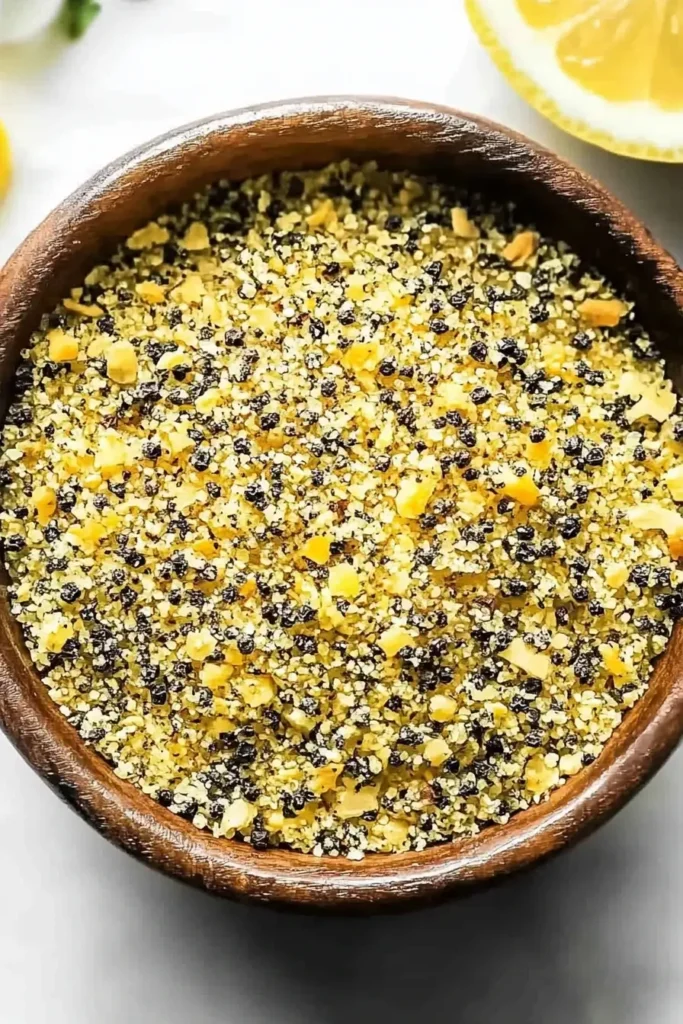
Step-by-Step Instructions for the Best Lemon Pepper Seasoning Recipe
Let’s get into the heart of the lemon pepper seasoning recipe process. Slow down, enjoy the sensory beauty of this experience — it’s one of the most satisfying homemade projects you’ll ever try.
❶ Zesting the Lemons
Start with six medium-sized fresh lemons. Wash them thoroughly under warm water and scrub gently to remove any wax or residue. Dry completely.
- Using a microplane or fine zester, zest only the bright yellow outer layer. Avoid the white pith underneath — it’s bitter and will muddy the flavor.
- The aroma at this stage is intoxicating: bright, almost sparkling with oils misting into the air as you zest.
- Collect the zest onto a clean sheet of parchment paper.
Pro Tip: Rotate the lemon often to avoid digging too deep into the pith.
❷ Drying the Lemon Zest
Drying preserves all that lively flavor for storage. You have two main options:
Oven Drying (Quick Method)
- Preheat your oven to 170°F (75°C) or the lowest setting.
- Spread the zest evenly on a parchment-lined baking sheet.
- Bake for 20–30 minutes, checking and stirring every 10 minutes.
- You’ll know it’s ready when the zest feels dry and brittle but still retains its sunny color.
Dehydrator Method (Best Flavor Method)
- Set dehydrator to 95°F–105°F.
- Spread zest thinly on trays.
- Dry for 1.5–2 hours until crisp.
Sensory Checkpoint:
You should smell a deep, almost floral citrus scent — richer than raw lemon but not burnt.
❸ Grinding and Mixing
Once dried, it’s time to combine the flavors.
- In a spice grinder or coffee grinder (reserved for spices only!), add the dried lemon zest and the whole black peppercorns.
- Pulse in short bursts until you reach your desired texture: ideally, a coarse sand with little colorful flecks.
- Stir in the kosher salt, garlic powder, onion powder, and citric acid if using.
Important: Don’t overgrind. Overprocessing can turn your beautiful, vivid blend into a fine, dusty powder. You want texture!
❹ Storing the Lemon Pepper Seasoning
Immediately transfer your finished lemon pepper seasoning recipe into an airtight glass jar.
- Store in a cool, dark place away from heat and sunlight.
- It will stay vibrant for up to 6 months, but for best flavor, use within 3 months.
Storage Tip: Label the jar with the date — homemade blends are so good, it’s easy to forget when you made them!
Why This Homemade Lemon Pepper Seasoning Recipe Works So Well
- Maximum Freshness: Fresh zest means real citrus oils, not just dried-out flavor.
- Customizable Heat: Adjust the pepper to your liking — make it gentle or go full firecracker.
- No Fillers or Preservatives: You know exactly what’s in your seasoning, unlike some supermarket blends.
- Versatility: Use it everywhere — not just on chicken! Pasta, seafood, veggies, even rim your cocktail glasses with it.
Bonus Tip: For an extra zesty seasoning, add a few drops of lemon oil to the finished blend and stir thoroughly before storing.
Serving Suggestions for Lemon Pepper Seasoning Recipe
Your freshly made lemon pepper seasoning recipe is a little jar of sunshine and spice — ready to upgrade just about anything you cook. Here’s how to unleash its full delicious potential:
On Chicken
Rub it generously over chicken wings, thighs, or breasts before grilling, roasting, or air frying. The lemon brightens the meat while the pepper adds a zippy punch. Try tossing hot wings with melted butter and a heavy sprinkle of your seasoning for an Atlanta-style treat.
On Seafood
Shrimp, scallops, salmon, and whitefish LOVE this blend. Dust it lightly over seafood before pan-searing, baking, or grilling. It brings out the natural sweetness of the seafood while adding a tangy, savory balance.
On Vegetables
Toss broccoli, asparagus, zucchini, or brussels sprouts with olive oil and a hearty sprinkle of lemon pepper seasoning before roasting. The citrusy notes caramelize beautifully in the oven, creating veggie dishes even picky eaters will crave.
On Fries and Popcorn
For an unexpected twist, toss hot French fries or buttery popcorn with your homemade seasoning. The crackle of pepper and pop of lemon will make every bite addictive.
In Pasta and Grains
Add a pinch to pasta sauces, risottos, quinoa, or couscous for a bright, peppery depth that lifts the entire dish.
In Compound Butter
Mix softened butter with a few teaspoons of your lemon pepper seasoning recipe, then roll it into a log and chill. Slice medallions to melt over grilled steaks, roasted chicken, or warm bread.
Tips for Best Results with Your Lemon Pepper Seasoning Recipe
Even though this seasoning is simple to make, a few small touches can take your blend from good to extraordinary.
Dry the Lemon Zest Properly
Don’t rush the drying process! Wet or partially dried zest can lead to clumping, spoilage, and a dull flavor. Aim for crispness without browning.
Use Freshly Cracked Peppercorns
Buying whole peppercorns and cracking or grinding them yourself brings out essential oils that pre-ground pepper simply can’t match.
Avoid Overprocessing the Blend
Pulse your spice grinder gently. You’re aiming for a blend that’s coarse and textured, not powdery. Texture adds both visual appeal and a more dynamic flavor release when you cook.
Adjust Seasonings to Your Taste
Don’t be afraid to tweak. Love it lemonier? Add extra zest or citric acid. Prefer a smokier heat? Toss in a pinch of smoked paprika.
Toast the Peppercorns (Optional)
If you want a deeper, nuttier flavor, lightly toast your peppercorns in a dry pan over medium heat for 1–2 minutes before grinding.
Add a Finishing Sprinkle
Instead of just seasoning before cooking, try a light sprinkle of lemon pepper after roasting or grilling for an extra flavor boost.
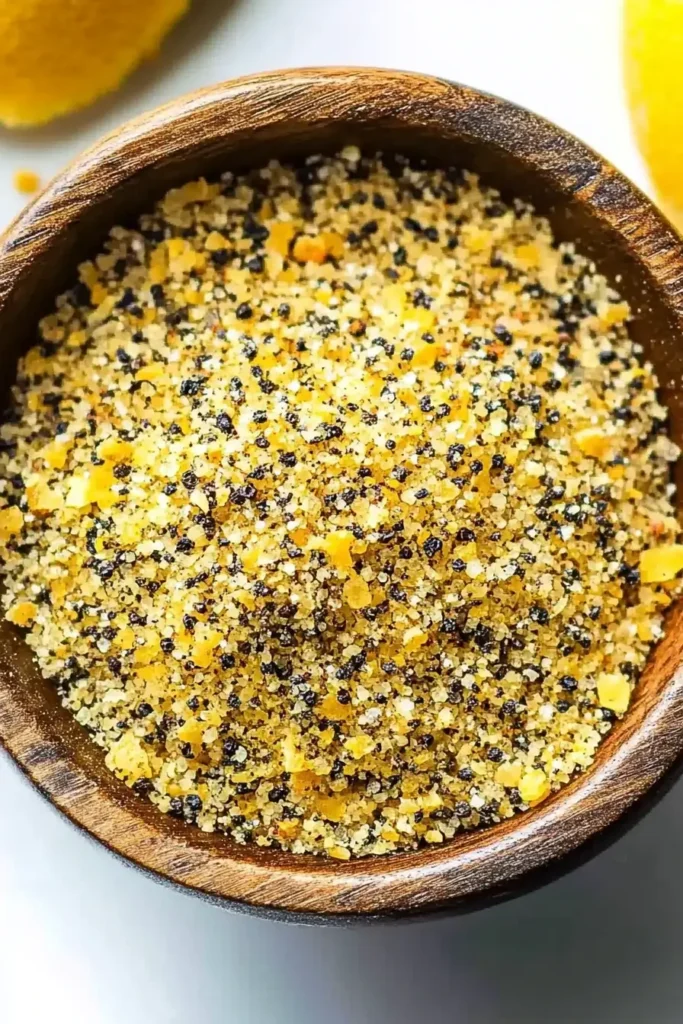
Storage Instructions for Your Lemon Pepper Seasoning Recipe
Proper storage ensures that all the effort you put into crafting your lemon pepper seasoning recipe doesn’t go to waste.
Best Storage Containers
Use small, airtight glass jars or spice tins. Glass is best because it doesn’t absorb oils or odors and keeps the seasoning fresh.
Avoid plastic containers — they can leach odors and cause your lemon pepper to lose its crisp aroma over time.
Keep It Cool, Dry, and Dark
Light, moisture, and heat are the enemies of spice freshness.
- Cool: Store it in a pantry or spice drawer, away from the stove.
- Dry: Always use a dry spoon when scooping seasoning to avoid introducing moisture.
- Dark: Opaque or amber-colored jars protect from light degradation.
Shelf Life
- Best Flavor: Within 3 months
- Still Good: Up to 6 months
After that, the lemon notes may fade, and the pepper may lose some of its fiery bite. While it’s still safe to use, the seasoning will taste flatter and less vibrant.
Label Your Jar
Always label your jar with the date you made the seasoning. Homemade spice blends don’t have preservatives, so it’s easy to forget when they were created.
Bonus Tip: If your seasoning starts to smell faint, toast it lightly in a dry pan for 30 seconds to revive the aroma!
FAQ About Lemon Pepper Seasoning Recipe
How long does homemade lemon pepper seasoning last?
A properly stored lemon pepper seasoning recipe will maintain its vibrant flavor for up to 3 months and remain usable for up to 6 months. The lemon oils are more volatile than dried herbs, so freshness is key.
Can I make lemon pepper seasoning without a dehydrator?
Absolutely! The oven-drying method works beautifully. Simply zest your lemons and bake the zest on a parchment-lined tray at your oven’s lowest setting (around 170°F) until fully dry.
What if my lemon zest browns during drying?
If your zest turns brown, the heat was too high. While slightly caramelized zest is still usable, it will have a more muted flavor and less zing. Next time, lower the temperature or stir more frequently.
Is lemon pepper seasoning healthy?
Yes! A homemade lemon pepper seasoning recipe has no preservatives, minimal (or no) salt, and is low in calories, carbs, and fat. It’s a flavorful way to season without added sugars or chemicals.
Can I substitute bottled lemon zest or lemon peel?
You can, but it’s not ideal. Bottled zest often lacks the fresh, bright oils that make this seasoning magical. If you must use bottled, add a few drops of lemon oil or a pinch of citric acid to boost the citrus flavor.
Conclusion
Crafting your own lemon pepper seasoning recipe is more than just a kitchen project — it’s a return to real, vibrant flavor.
By zesting fresh lemons, cracking your own peppercorns, and mixing a blend with your personal touch, you create a seasoning that is brighter, bolder, and infinitely fresher than anything you can buy. Whether you’re grilling chicken, roasting vegetables, seasoning seafood, or just upgrading a bowl of popcorn, your homemade lemon pepper will make every bite sing.
Plus, there’s an undeniable satisfaction in looking at that little jar on your spice rack — knowing you crafted it yourself, from scratch, with real ingredients.
Now that you have the ultimate guide at your fingertips, it’s time to zest, grind, and savor. Trust me: once you try it homemade, you’ll never reach for a store-bought lemon pepper blend again.
Print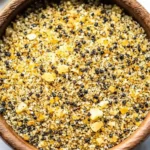
Lemon Pepper Seasoning Recipe
- Total Time: 45 minutes
- Yield: About ¾ cup seasoning 1x
Description
Bright, zesty, and bold — this homemade lemon pepper seasoning recipe delivers unbeatable citrus flavor and spice with no fillers.
Ingredients
Main Ingredients:
- Zest of 6 medium fresh lemons (preferably organic)
- 2 tablespoons whole black peppercorns
- 1 tablespoon coarse kosher salt (optional)
Optional Additions:
- 1 teaspoon granulated garlic (garlic powder)
- 1 teaspoon onion powder
- ½ teaspoon citric acid
Variations:
- Swap half black peppercorns for white or pink peppercorns
- 2 drops food-grade lemon oil for extra citrus boost
Instructions
- Prep Lemons: Wash and dry lemons. Zest using a microplane, avoiding the white pith.
- Dry the Zest:
– Oven Method: Bake zest at 170°F (75°C) for 20–30 minutes on a parchment-lined sheet, stirring every 10 minutes.
– Dehydrator Method: Dry zest at 95–105°F for 1.5–2 hours until crisp. - Grind: Pulse dried zest and peppercorns in a spice grinder to a coarse texture. Do not overprocess.
- Mix: Stir in salt, garlic powder, onion powder, and citric acid if using.
- Store: Transfer to an airtight glass jar and store in a cool, dark place. Use within 3 months for best flavor.
Notes
- Dry zest thoroughly to prevent spoilage.
- For a salt-free version, omit the kosher salt.
- Adjust spice or tartness with different peppercorns or added citric acid.
- Store in labeled jars; toast before use if aroma fades.
- Prep Time: 15 minutes
- Cook Time: 30 minutes
- Category: Seasoning
- Method: Dehydrating
- Cuisine: American
Nutrition
- Serving Size: 1 teaspoon
- Calories: 5 kcal
- Sugar: 0 g
- Sodium: 75 mg (with salt)
- Fat: 0 g
- Saturated Fat: 0 g
- Unsaturated Fat: 0 g
- Trans Fat: 0 g
- Carbohydrates: 1 g
- Fiber: 0 g
- Protein: 0 g
- Cholesterol: 0 mg
Additional Recommended Recipes
Looking for more homemade seasoning blends? Try these:
- Lemon Pepper Sauce Recipe – A tangy, buttery sauce that pairs beautifully with wings, fish, or grilled veggies.
- Slap Ya Mama Seasoning Recipe – Bring the heat with this bold Cajun blend—perfect for meats, fries, or seafood.
- Hillbilly Fish Fry Seasonings Recipe – A crispy, peppery mix designed to elevate your next catfish or trout night.
- Red Robin Seasoning Recipe – That signature savory-sweet blend to sprinkle on burgers, fries, or roasted potatoes.
Homemade seasonings like these make everyday cooking pop with personality—fresh, bold, and totally customizable.
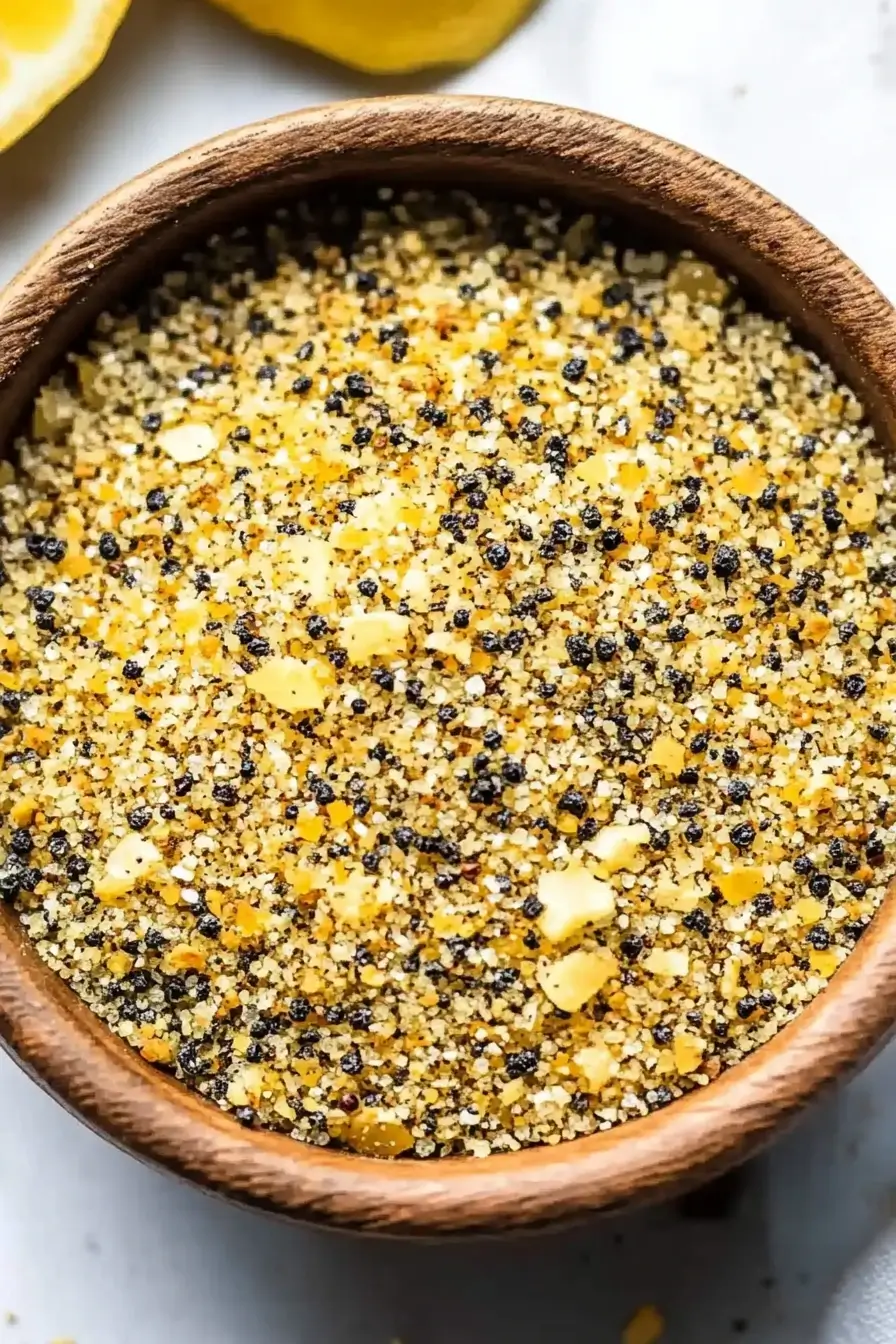

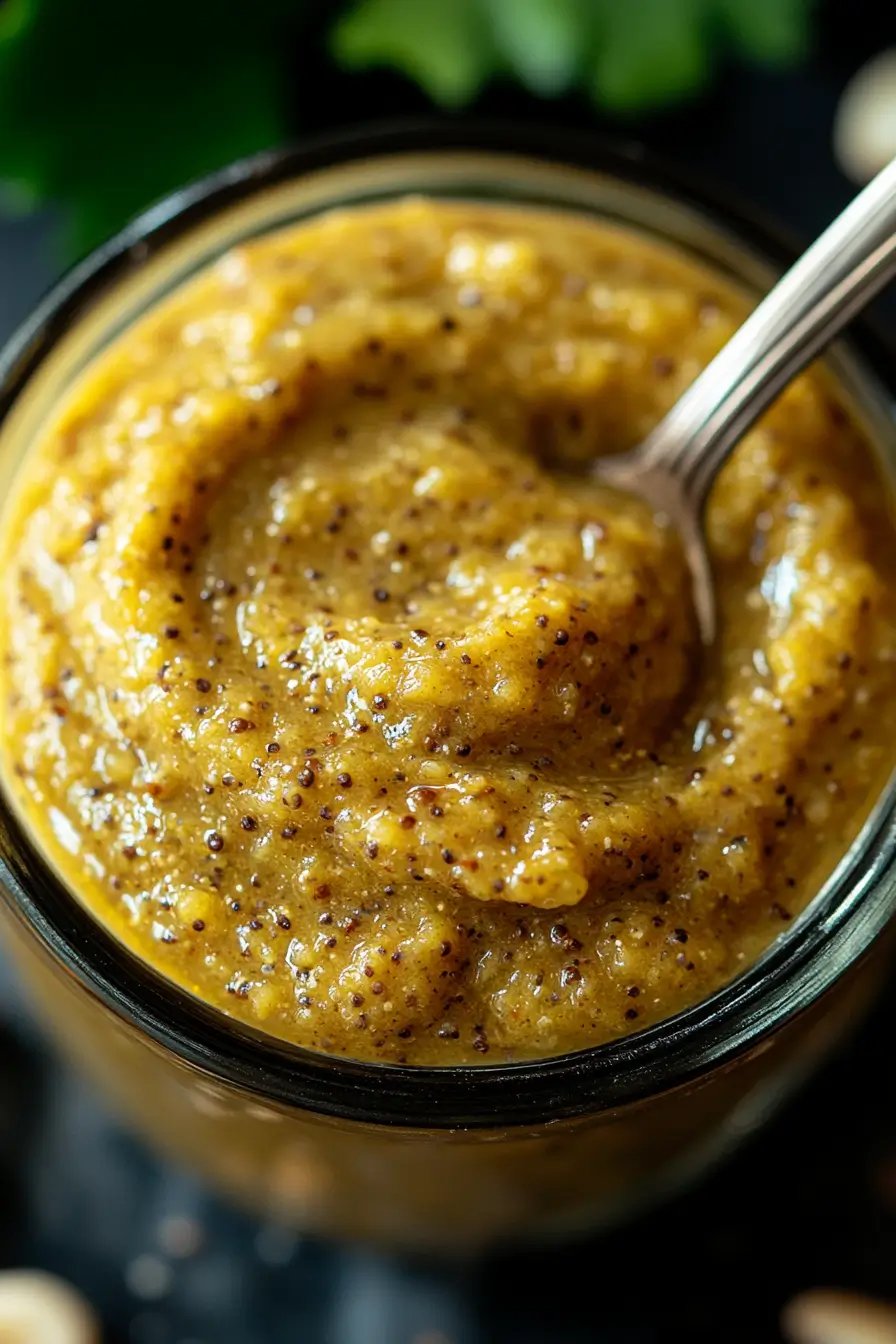
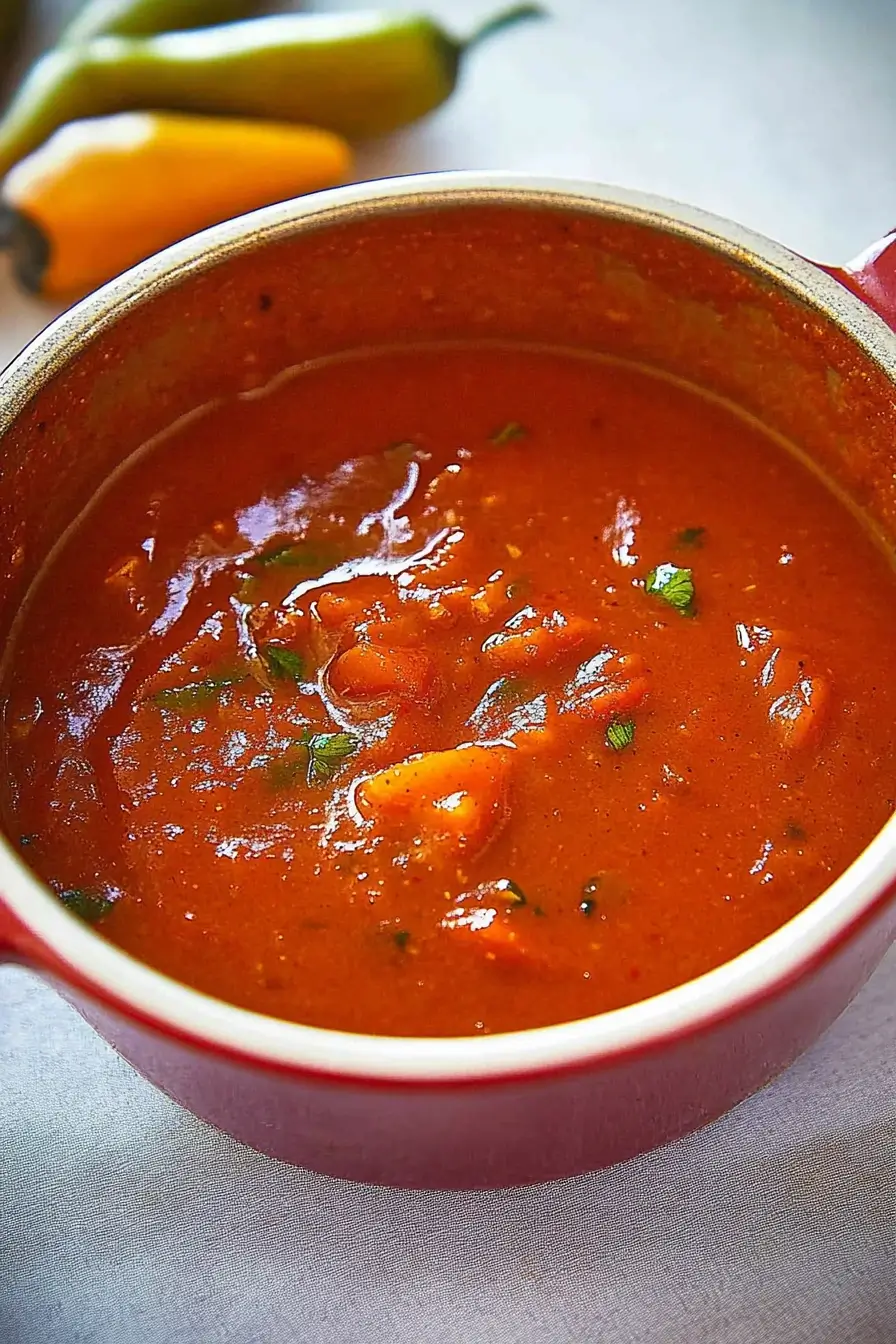
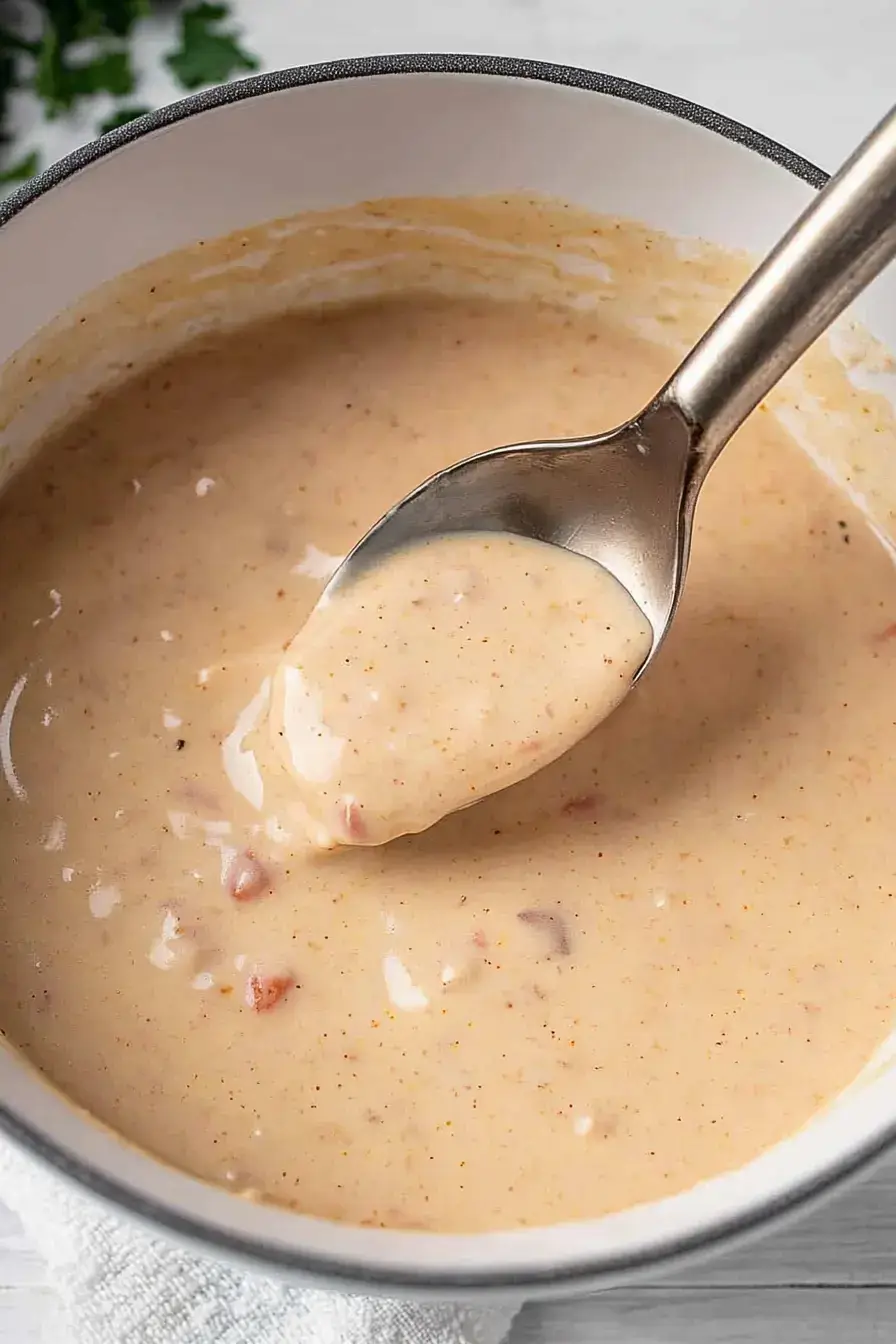
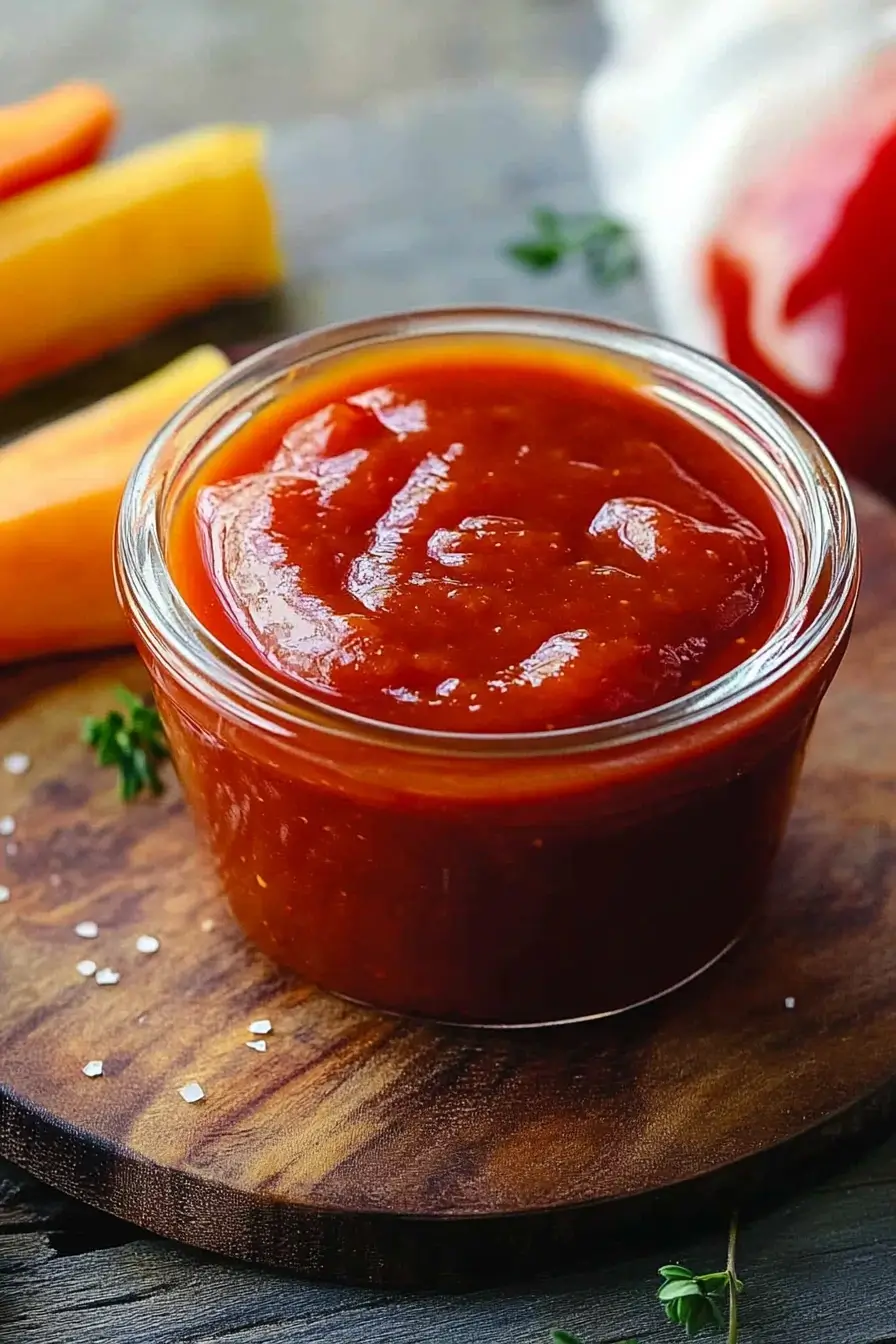
Comments and Reviews